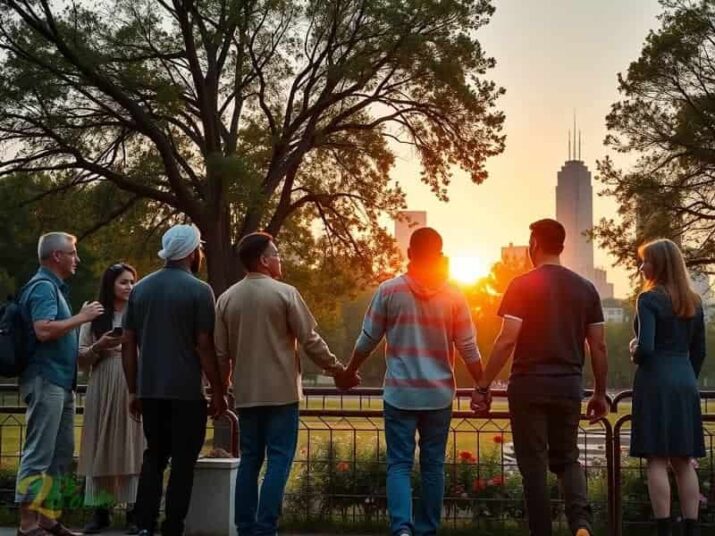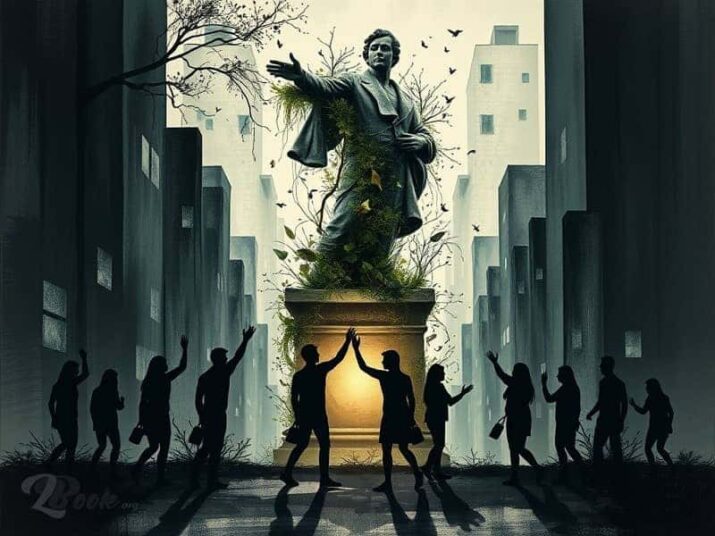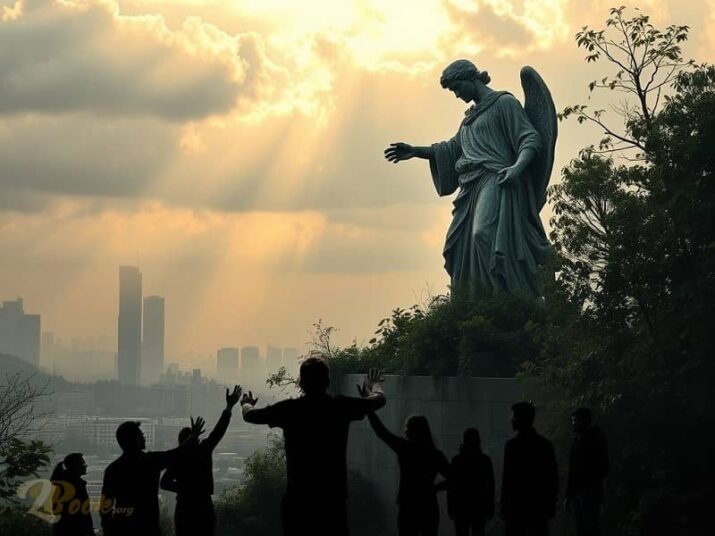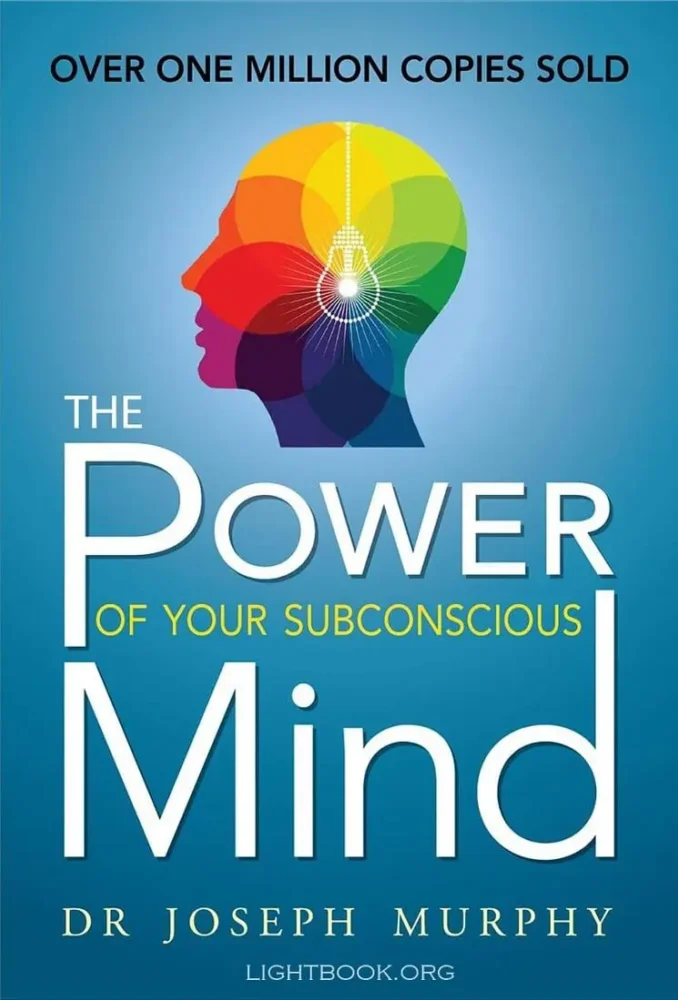Lost Humanity: Rediscovering Our Human Essence
The Lost Humanity: A Deep Dive into the Essence of Being Human
Introductionity is often seen as the essence of what it means to be human. It encompasses our values, morals, compassion, and the innate ability to connect with others. However, in a world increasingly dominated by materialism, selfishness, and moral decay, many wonder: What remains when humanity is lost?
This exploration delves into the remnants of dignity, honor, and ethics when one’s humanity is stripped away, and questions whether there is hope for redemption. This comprehensive examination will analyze various dimensions of lost humanity, exploring its causes, effects, and paths toward recovery.

The Definition of Humanity
What Does It Mean to Be Human?
To understand the lost humanity, we must first define what being human means. Humanity is characterized by:
- Empathy: The ability to understand and share the feelings of others.
- Compassion: Acting on empathy to alleviate the suffering of others.
- Values and Morals: A framework guiding our behavior and decisions.
- Connection: Building relationships that foster understanding and cooperation.
The Fragility of Humanity
Humanity is not an inherent state; it is a fragile construct that can be easily disrupted by various factors, including societal pressures, personal trauma, and environmental influences. This fragility underscores the need for continual nurturing of our human qualities.
The Descent into Darkness
The Factors Leading to the Lost Humanity
- Materialism: In a world obsessed with consumerism, individuals often prioritize possessions over relationships, leading to a hollow existence. The constant pursuit of wealth can overshadow the importance of community and connection.
- Selfishness: The drive for personal gain can overshadow the needs of others, resulting in a society marked by isolation and distrust. This self-centeredness often breeds resentment and alienation.
- Societal Pressures: Expectations to conform to certain behaviors can lead individuals to compromise their values, further distancing them from their true selves. The societal glorification of success at any cost can pressure individuals to sacrifice their integrity.
The Impact of Losing Humanity
When humanity is lost, individuals may experience:
- Emotional Detachment: A lack of connection with others can lead to loneliness and despair. People may find it hard to build meaningful relationships, resulting in a vicious cycle of isolation.
- Moral Ambiguity: Without a strong moral compass, individuals may justify unethical behavior. This moral flexibility can lead to decisions that harm others and diminish one’s sense of self-worth.
- Inner Turmoil: A conflict between one’s actions and values can create a sense of emptiness. Individuals may feel trapped in their choices, leading to anxiety and regret.
The Hollow Shell: A Life Without Humanity
The External vs. Internal Self
An individual may appear functional on the outside, maintaining a façade of normalcy while feeling completely hollow within. This duality creates a profound sense of disconnection from oneself and others. The external self may engage in social norms and responsibilities, while the internal self grapples with feelings of inadequacy and despair.
The Psychological Toll
Living in a state devoid of humanity can lead to severe psychological issues, including:
- Depression: A pervasive sense of sadness and hopelessness can take root in the absence of meaningful connections and purpose.
- Anxiety: A constant state of worry about one’s worth and place in the world can exacerbate feelings of isolation and despair.
- Existential Crisis: Questioning the meaning of life and one’s purpose can lead to a profound sense of confusion and disillusionment. Individuals may find themselves seeking answers in destructive behaviors.
The Role of Society in Humanity’s Decline
The Influence of Culture
Cultural narratives often glorify success at any cost, pushing individuals to forsake their humanity in pursuit of wealth and status. This cultural shift can lead to widespread moral decay. Values such as kindness, cooperation, and humility are often overshadowed by the pursuit of power and influence.
Technology’s Impact
The rise of technology has transformed interpersonal relationships. Social media, while connecting people superficially, often exacerbates feelings of loneliness and inadequacy. The curated lives presented online can create unrealistic comparisons, leading to further disconnection from reality.
The Disconnection from Nature
Modern society’s detachment from nature also plays a significant role in the loss of humanity. The relentless pace of urban life and technological advancement can lead to a disconnection from the natural world, which is often a source of inspiration, peace, and reflection. This disconnection can strip individuals of a sense of belonging and purpose.

The Quest for Redemption
Recognizing the Lost Humanity
The first step toward recovery is acknowledging the loss humanity. This recognition can be painful but is essential for healing. By confronting the reality of their situation, individuals can begin to take steps toward reclaiming their humanity.
Rebuilding Connections
- Fostering Empathy: Engaging in acts of kindness can help restore a sense of connection to others. Simple gestures, like volunteering or helping a neighbor, can rekindle the spark of humanity within.
- Cultivating Values: Re-evaluating personal values and aligning actions with them can reignite a sense of purpose. Reflecting on what truly matters can guide individuals back to their core humanity.
- Seeking Support: Therapy and community support can provide the necessary tools for individuals to reconnect with their humanity. Sharing experiences and feelings with others can foster a sense of belonging and understanding.
The Power of Forgiveness
Forgiving oneself and others can be a liberating process, allowing individuals to move past their mistakes and embrace a more compassionate existence. This journey often leads to personal growth and a renewed sense of purpose.
The Role of Education in Reclaiming Humanity
Teaching Empathy and Compassion
Education plays a crucial role in nurturing empathy and compassion in future generations. Schools can incorporate programs that emphasize social and emotional learning, helping students develop a sense of understanding and respect for others.
Encouraging Critical Thinking
Teaching critical thinking skills can empower individuals to question societal norms and values. By fostering a culture of inquiry, we can encourage people to seek deeper meanings and connections in their lives.
Community Engagement
Encouraging community involvement among students can help them understand the importance of social responsibility and the impact of their actions on others. Engaging in community service can cultivate a sense of belonging and purpose.
Hope for the Future
The Resilience of the Human Spirit
Despite the overwhelming challenges, the human spirit is remarkably resilient. History shows that individuals can reclaim their humanity and inspire positive change, even in the most adverse circumstances. Movements for social justice, environmental protection, and community well-being illustrate the power of collective action in restoring humanity.
Building a Better Society
Collective efforts to promote empathy, compassion, and ethical behavior can create a supportive environment in which humanity can thrive. Initiatives that encourage dialogue and understanding among diverse groups can pave the way for a more inclusive and harmonious society.
Conclusion
The lost humanity is a profound tragedy that affects not only individuals but also society as a whole. However, through recognition, connection, and the rebuilding of values, there is hope for redemption. It is essential to strive for a world where humanity thrives, where compassion and dignity are at the forefront of our interactions.
As we navigate this complex landscape, let us remember that the essence of being human lies not in our possessions or status, but in our ability to connect with one another and uplift each other in times of darkness. The journey to reclaim our lost humanity is difficult, but it is a journey worth taking.
By fostering empathy, nurturing connections, and embracing our shared humanity, we can pave the way for a brighter future for ourselves and generations to come.

Call to Action
To those who resonate with this message, I encourage you to seek out resources that can guide you on this journey. Books, workshops, and community programs focusing on emotional intelligence, empathy development, and moral philosophy can provide valuable insights.
Engage with local libraries, educational institutions, and online platforms that offer support in personal growth and community engagement. Together, we can reclaim our humanity and create a world where it flourishes once again.
Related Posts
- The Power of Your Subconscious Mind Free by Joseph Murphy
- How to Learn to Apologize and Win the Hearts of People?
- Relationships Guides You to a Happy & Successful Life
- What is Happiness and How do You Achieve it?
- NASA Scientists Confirm There is Water on Mars (Video)
Be Happy Every Day with Doing These 6 Tips All Time







